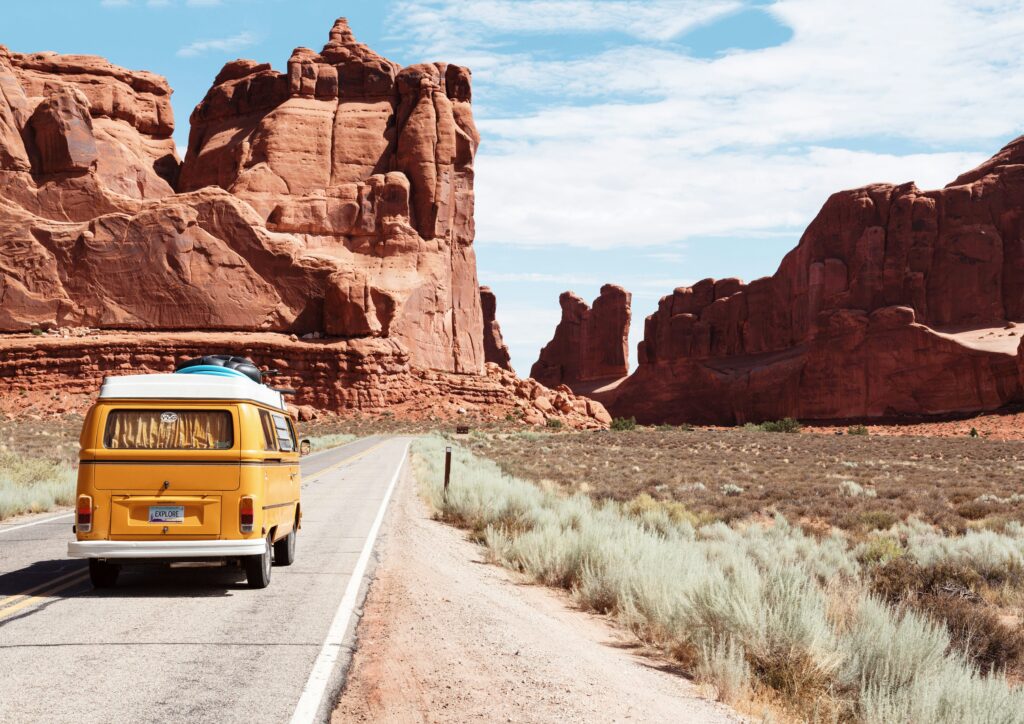Explore the many cheap ways to travel
Traveling the world doesn’t have to be expensive. In fact, there are countless cheap ways to travel the world that allow you to experience new cultures, meet amazing people, and create unforgettable memories without breaking the bank. This guide is designed to help you understand the importance of budget travel, the benefits of traveling on a shoestring budget, and provides an overview of the tips and strategies that will be covered in this article.
Planning Your Trip on a Budget
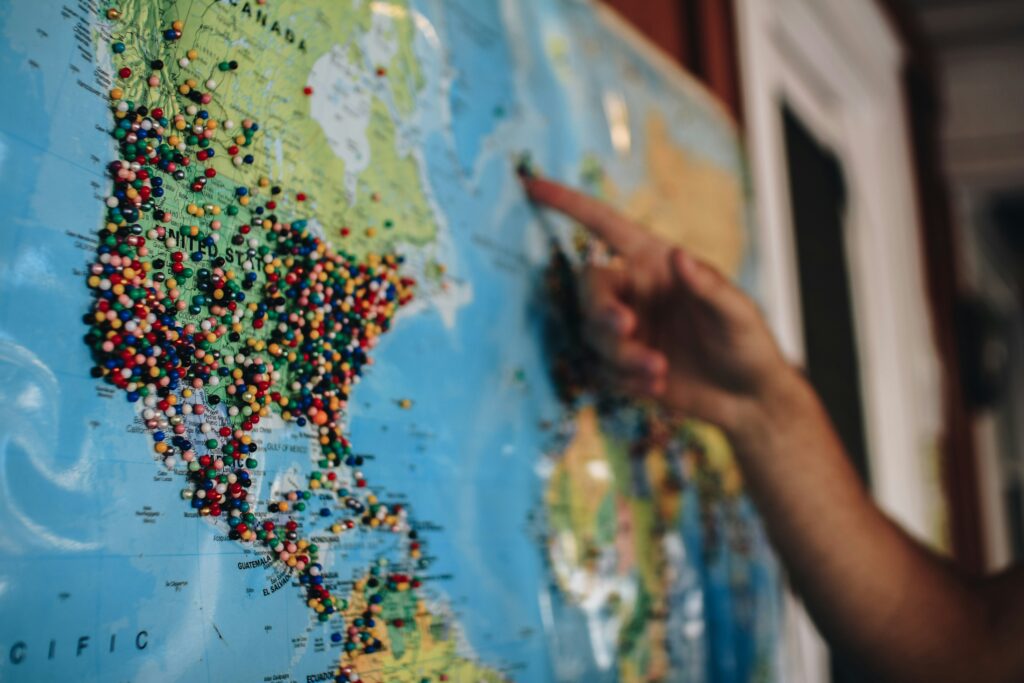
Planning is crucial when it comes to cheap ways to travel the world. Proper planning ensures you make the most out of your resources and time. From choosing the right destinations to setting a travel budget, careful planning is the foundation of budget travel.
Setting Financial Goals
Planning your trip on a budget starts with understanding your financial constraints and setting clear priorities. Determine how much you can afford to spend and break down your budget into categories such as transportation, accommodation, food, activities, and miscellaneous expenses. This helps you allocate funds appropriately and avoid overspending in any one area.
Creating a Detailed Itinerary
One effective strategy is to create a detailed itinerary. Outline your travel dates, destinations, and activities for each day. This not only helps you stay organized but also allows you to identify potential cost-saving opportunities. For instance, if you plan to visit multiple attractions in a single day, look for combination tickets or passes that offer discounts.
Flexibility in Planning
Being flexible with your travel dates, destinations, and activities can open up numerous opportunities for savings. For example, flying mid-week is often cheaper than flying on weekends. Similarly, visiting popular tourist destinations during the off-peak season can result in significant savings on flights, accommodation, and attractions.
Conducting Thorough Research
Research is another critical component of planning your trip on a budget. Spend time reading travel blogs, forums, and guidebooks to gather information on budget-friendly destinations, accommodation options, and activities. Websites like TripAdvisor and Lonely Planet are excellent resources for finding reviews and recommendations from fellow travelers. Additionally, joining travel groups on social media platforms like Facebook can provide valuable insights and tips from experienced budget travelers.
Utilizing Travel Apps and Tools
Utilizing travel apps and tools can also enhance your planning process. Apps like Google Maps, Rome2rio, and TripIt can help you navigate your destination, find the best routes, and keep track of your itinerary. Budgeting apps like Trail Wallet and TravelSpend can assist you in monitoring your expenses and staying within your budget.
Booking in Advance
Consider booking your travel arrangements well in advance. Flights, accommodation, and popular attractions often offer early bird discounts for bookings made several months ahead. This not only saves you money but also ensures you secure the best options before they sell out. However, if you prefer last-minute travel, look for deals on websites like Lastminute.com or use apps like HotelTonight for discounted rates on unsold hotel rooms.
Researching Affordable Destinations
Choosing the right destination is key to budget travel. Some places offer excellent value for your money, allowing you to experience luxury without the high costs.

Factors to Consider When Choosing a Budget-Friendly Destination
When selecting a destination, consider factors such as the cost of living, exchange rates, and the availability of affordable accommodation and transportation. Researching these factors will help you identify destinations that align with your budget.
Cost of Living
Cost of living is a significant factor to consider when choosing a budget-friendly destination. Some countries have a lower cost of living, which means your money goes further. For example, Southeast Asian countries like Thailand, Vietnam, and Cambodia offer affordable accommodation, food, and transportation. Similarly, Eastern European countries like Hungary, Poland, and Romania are known for their low cost of living compared to Western Europe.
Exchange Rates
Exchange rates also play a crucial role in determining the affordability of a destination. Favorable exchange rates can make a significant difference in your overall expenses. Before finalizing your destination, check the current exchange rates and consider how they will impact your budget. Countries where your home currency has a strong exchange rate can offer excellent value for money.
Affordable Accommodation and Transportation
The availability of affordable accommodation and transportation is another important factor. Look for destinations with a wide range of budget-friendly accommodation options, such as hostels, guesthouses, and vacation rentals. Similarly, destinations with efficient and affordable public transportation systems can help you save on travel costs. Cities like Prague, Budapest, and Bangkok offer excellent public transportation options that are both affordable and convenient.
Safety
Safety is another critical factor to consider. While budget travel is about saving money, it should not come at the expense of your safety. Research the safety of potential destinations by reading travel advisories, reviews, and forums. Ensure that the destinations you choose are safe for travelers and have a low crime rate.
Cultural and Language Barriers
Cultural and language barriers can also impact your travel experience. Some travelers prefer destinations where English is widely spoken, making it easier to communicate and navigate. However, if you’re open to learning a few basic phrases in a new language, you can expand your options to more budget-friendly destinations where English might not be as prevalent.
Top Budget Travel Destinations

Thailand is a favorite among budget travelers for its stunning beaches, vibrant nightlife, and delicious street food. The cost of living is low, and there are numerous budget accommodation options ranging from hostels to guesthouses. Activities such as visiting temples, exploring markets, and enjoying the natural beauty are either free or very affordable.
Vietnam offers a mix of bustling cities, serene countryside, and breathtaking coastal regions. The food is incredibly cheap and flavorful, with street food being a highlight. Accommodation and transportation are also very affordable, making it an ideal destination for budget travelers.

Hungary, particularly Budapest, is known for its rich history, stunning architecture, and vibrant cultural scene. The cost of living is relatively low, and there are plenty of budget-friendly accommodation options. Public transportation is efficient and inexpensive, allowing you to explore the city without spending a fortune.
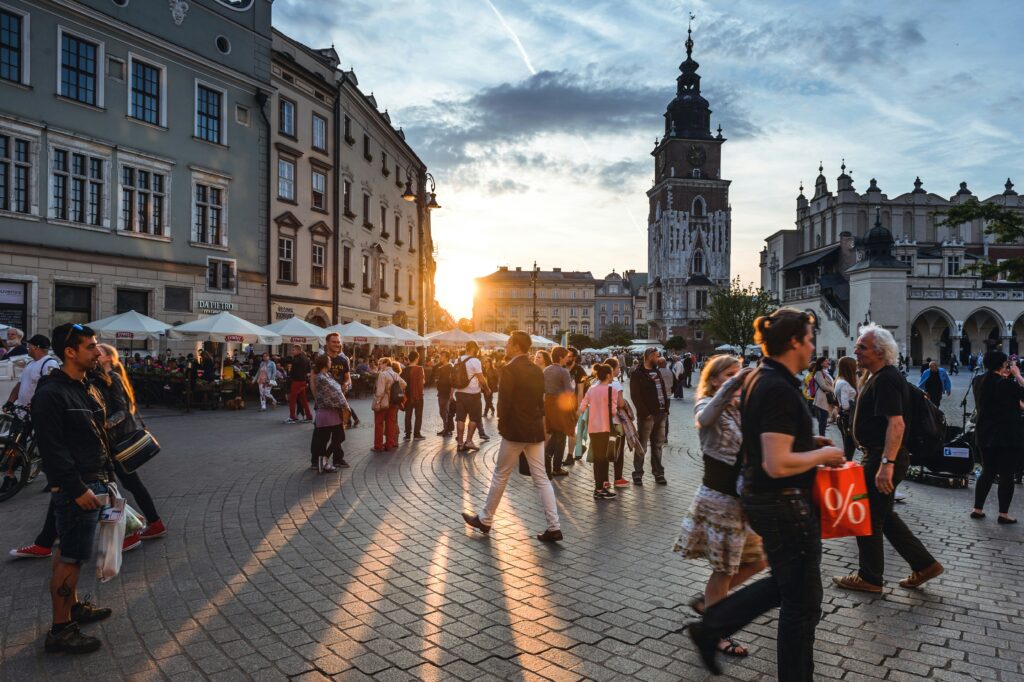
Poland is another Eastern European gem that offers affordable travel experiences. Cities like Krakow and Warsaw are rich in history and culture, with numerous free or low-cost attractions. The cost of food and accommodation is significantly lower than in Western Europe, making it an excellent choice for budget travelers.
Guatemala and Nicaragua
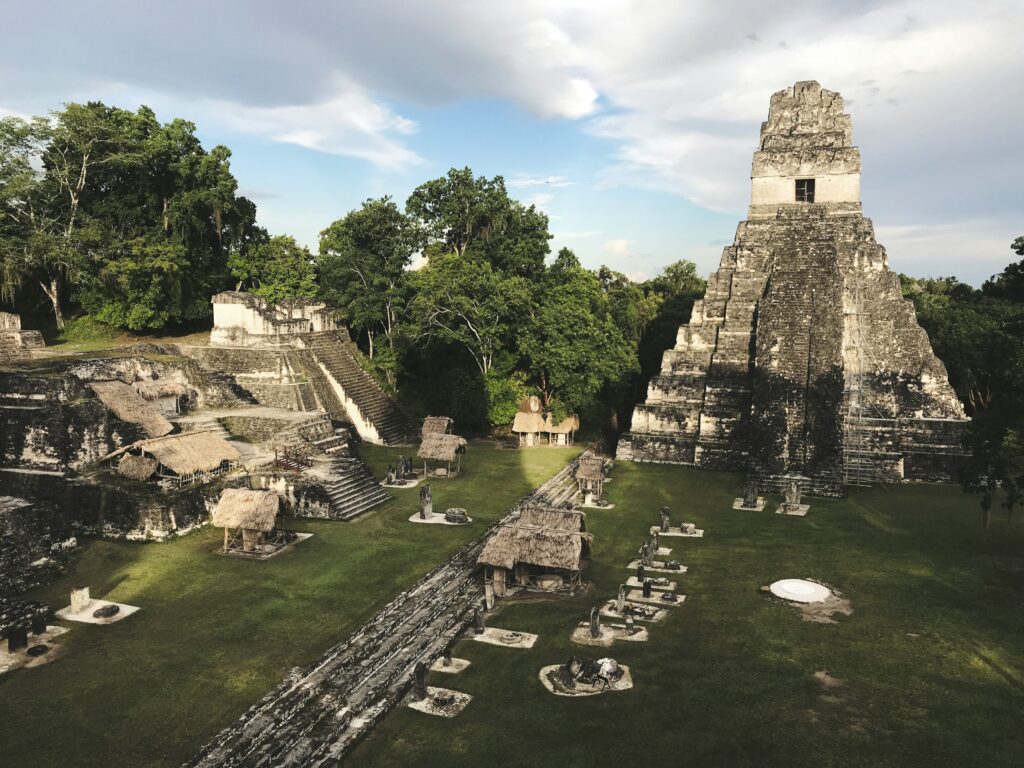
Guatemala and Nicaragua in Central America are also fantastic budget travel destinations. Both countries offer stunning natural landscapes, including volcanoes, lakes, and beaches. The cost of living is low, and there are plenty of budget accommodation options. These destinations also provide unique cultural experiences and opportunities for adventure activities at a fraction of the cost of more developed countries.
Setting a Realistic Travel Budget
A well-planned budget helps you manage your finances effectively, ensuring you don’t overspend during your trip.
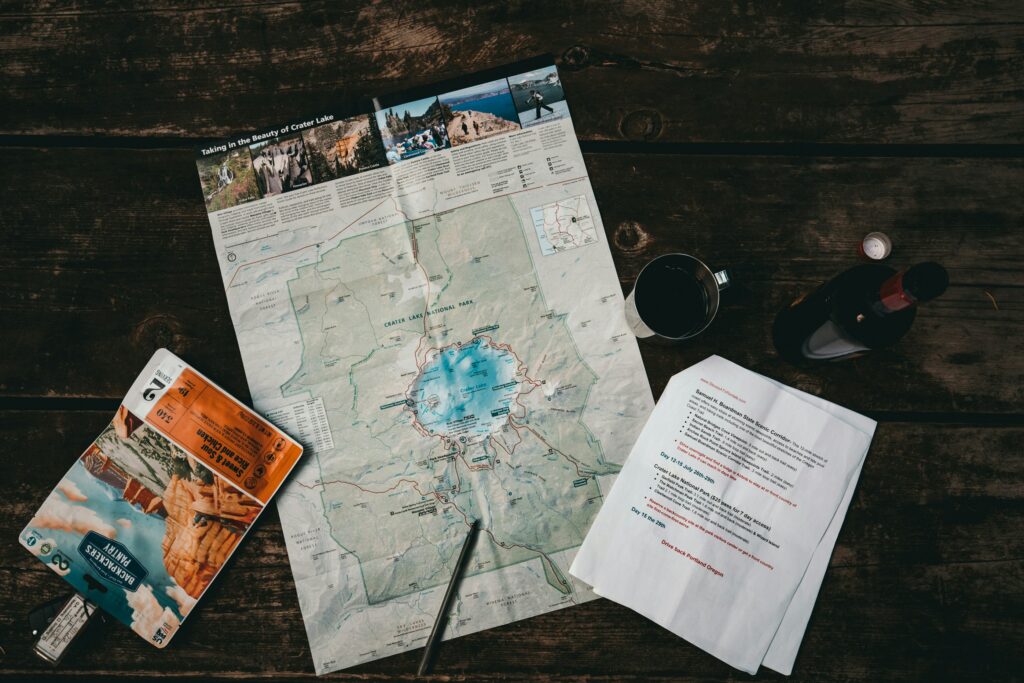
Tips for Creating a Travel Budget
Start by estimating your travel expenses, including flights, accommodation, food, transportation, and activities. Use budgeting tools and apps to track your expenses and stay within your limits.
Understanding Your Financial Situation
Creating a travel budget begins with understanding your financial situation and setting realistic spending limits. Start by determining the total amount you can afford to spend on your trip. This total budget should cover all aspects of your travel, including flights, accommodation, food, transportation, activities, and any other miscellaneous expenses.
Breaking Down Your Budget
Break down your total budget into categories. For example, allocate a certain amount for flights, another amount for accommodation, and so on. This helps you see how much you can spend in each category and prevents you from overspending in one area and running out of funds in another.
Researching Costs
Research the costs associated with your destination to get a better understanding of what to expect. Look up average prices for flights, accommodation, food, and activities. Websites like Numbeo and Expatistan can provide valuable insights into the cost of living in various destinations. Use these estimates to refine your budget and ensure it aligns with the actual costs.
Using Budgeting Tools
Use budgeting tools and apps to track your expenses before and during your trip. Apps like Trail Wallet, TravelSpend, and Mint can help you monitor your spending in real-time and stay within your budget. These tools also allow you to categorize expenses, set spending limits, and receive alerts when you’re nearing your budget for a particular category.
How to Stick to Your Budget During the Trip
To stick to your budget, monitor your spending regularly, prioritize essential expenses, and avoid impulse purchases. Using cash instead of credit cards can also help you keep track of your spending.
Monitoring Your Spending
To stick to your budget, it’s crucial to monitor your spending regularly. Keep all your receipts and log your expenses daily. This helps you stay aware of your spending habits and make adjustments as needed.
Prioritizing Essential Expenses
Prioritize essential expenses such as accommodation, food, and transportation. Allocate a larger portion of your budget to these categories and look for ways to save on non-essential expenses like souvenirs and entertainment.
Avoiding Impulse Purchases
Impulse purchases can quickly derail your budget. Before buying anything, ask yourself if it’s necessary and if it fits within your budget. Consider the long-term impact of your spending decisions and prioritize experiences over material items.
Using Cash Instead of Credit Cards
Using cash instead of credit cards can help you keep track of your spending and avoid overspending. Withdraw a set amount of cash for each day or week and stick to it. This physical limitation can help you manage your budget more effectively.
Making Adjustments as Needed
Be prepared to make adjustments to your budget as needed. If you overspend in one category, look for ways to cut back in another. Flexibility and adaptability are key to successfully managing your travel budget.
Finding the Cheapest Travel Deals
Scoring the best travel deals can significantly reduce your expenses, allowing you to travel further and stay longer.

How to Use Travel Deal Websites and Apps
Websites like Skyscanner, Kayak, and Google Flights, as well as apps like Hopper, can help you find the best deals on flights, accommodations, and activities. Set up fare alerts to get notified of price drops.
Setting Fare Alerts
Setting fare alerts on these websites can notify you of price drops and special deals. This feature allows you to monitor prices over time and book when fares are at their lowest.
Using Travel Deal Apps
Travel deal apps like Hopper analyze flight prices and predict the best times to book. These apps can also send notifications when prices drop or when there are special deals available.
Checking Airline Websites
In addition to using comparison websites, check the official websites of airlines. Sometimes, airlines offer exclusive deals and discounts that are not available on third-party platforms.
Subscribing to Travel Deal Newsletters
Subscribing to travel deal newsletters from websites like Scott’s Cheap Flights, Secret Flying, and Travelzoo can provide you with curated lists of the best travel deals. These newsletters often include error fares, last-minute deals, and special promotions.
Tips for Booking Flights, Accommodations, and Activities at the Best Prices
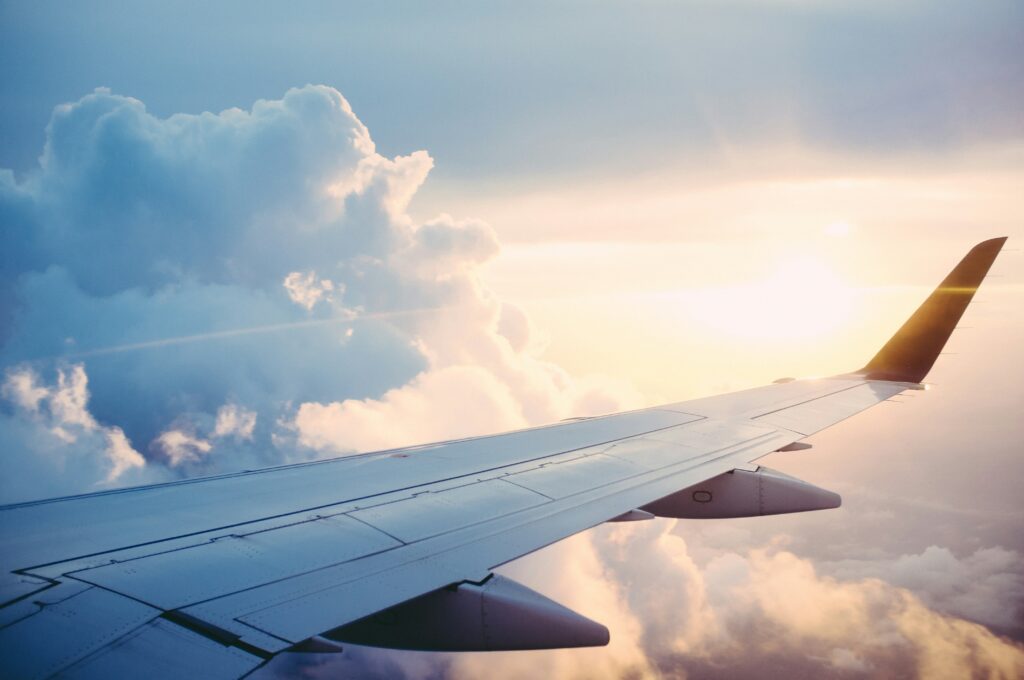
Booking Flights
To get the best deals on flights, book during midweek when prices are typically lower. Be flexible with your travel dates and consider flying during off-peak seasons. Budget airlines often offer lower fares but be aware of additional fees for baggage and seat selection.
Using Flight Comparison Websites
Flight comparison websites like Skyscanner, Kayak, and Google Flights allow you to compare prices from different airlines and travel agencies. These platforms often highlight the cheapest dates to fly and offer flexible date options to help you find the best deals.
Booking Accommodations
For accommodations, look for last-minute deals on websites like Booking.com and HotelTonight. Alternatively, book well in advance to secure early bird discounts. Consider staying in budget-friendly options like hostels, guesthouses, and vacation rentals.
Booking Activities
When booking activities, look for discounts on websites like Viator, GetYourGuide, and Klook. Many attractions offer online discounts or combination tickets that provide access to multiple sites at a reduced rate. Additionally, consider free or low-cost activities such as walking tours, hiking, and visiting public parks.
Traveling During Off-Peak Seasons
Traveling during off-peak seasons can result in significant savings on flights, accommodations, and activities. Off-peak travel also means fewer crowds, allowing you to enjoy a more relaxed and authentic experience.
Negotiating Prices
In some destinations, it’s possible to negotiate prices for accommodation and activities. This is especially true in markets, local shops, and smaller guesthouses. Polite bargaining can result in better deals and additional savings.
Affordable Accommodation Options
Finding affordable accommodation is essential for budget travel. Here are some options to consider:

Staying in Hostels
Hostels are a great option for budget travelers, offering affordable rates and a chance to meet fellow travelers. They are not only budget-friendly but also provide a social environment where you can meet other travelers. Many hostels offer shared dormitories, private rooms, and communal areas such as kitchens, lounges, and rooftops. Hostels often organize social events, tours, and activities, making it easy to connect with like-minded travelers.
To find reputable hostels, use websites like Hostelworld, Hostelbookers, and Booking.com. These platforms allow you to read reviews, compare prices, and book accommodation in advance. Pay attention to ratings and reviews from previous guests to ensure the hostel meets your expectations for cleanliness, safety, and amenities. Many hostels offer amenities such as free Wi-Fi, breakfast, lockers, and laundry facilities. Some hostels even have unique features like rooftop bars, swimming pools, and co-working spaces. Consider the amenities that are important to you and choose a hostel that offers the best value for your budget.
Choosing Budget Hotels
To find budget hotels, use websites like Booking.com, Agoda, and Expedia. These platforms allow you to filter results by price, location, and amenities. Look for hotels with high ratings and positive reviews from previous guests. Compare prices across different booking platforms to find the best deals. Sometimes, booking directly through the hotel’s website can result in additional discounts or perks. Use price comparison tools like Trivago to ensure you’re getting the best rate.
Reading reviews is essential when choosing budget hotels. Reviews provide insights into the quality of the hotel, cleanliness, service, and overall experience. Pay attention to recurring themes in the reviews and consider both positive and negative feedback. Consider the location of the hotel in relation to major attractions, public transportation, and amenities. Staying in a central location can save you time and money on transportation. However, hotels in less touristy areas may offer lower rates and a more authentic experience.
Exploring Alternative Lodging Options
Alternative lodging options such as Airbnb, vacation rentals, couchsurfing, and house sitting can provide unique and affordable accommodation experiences.
Airbnb and Vacation Rentals
Airbnb and vacation rental platforms offer a wide range of accommodation options, from private rooms to entire apartments and houses. These options often provide more space and amenities than traditional hotels at a lower cost. Look for properties with high ratings, positive reviews, and responsive hosts.
Couchsurfing
Couchsurfing is a community-based platform where travelers can stay with local hosts for free. This option not only saves money but also provides an opportunity to connect with locals and experience the destination from an insider’s perspective. Create a detailed profile, read host reviews, and communicate clearly with potential hosts to ensure a safe and enjoyable experience.
House Sitting
House sitting involves taking care of someone’s home and pets while they are away in exchange for free accommodation. Websites like TrustedHousesitters and MindMyHouse connect house sitters with homeowners worldwide. House sitting can provide comfortable and unique accommodation experiences, especially for longer stays.
Camping and Eco-Friendly Stays
Camping is an affordable and adventurous accommodation option. Many destinations offer campgrounds with basic amenities at low costs. Additionally, consider eco-friendly stays such as eco-lodges, farm stays, and sustainable accommodations. These options often provide unique experiences and support environmentally conscious practices.
Budget-Friendly Transportation Tips
Transportation is a significant expense when traveling, but there are many ways to save on this essential aspect of your journey.
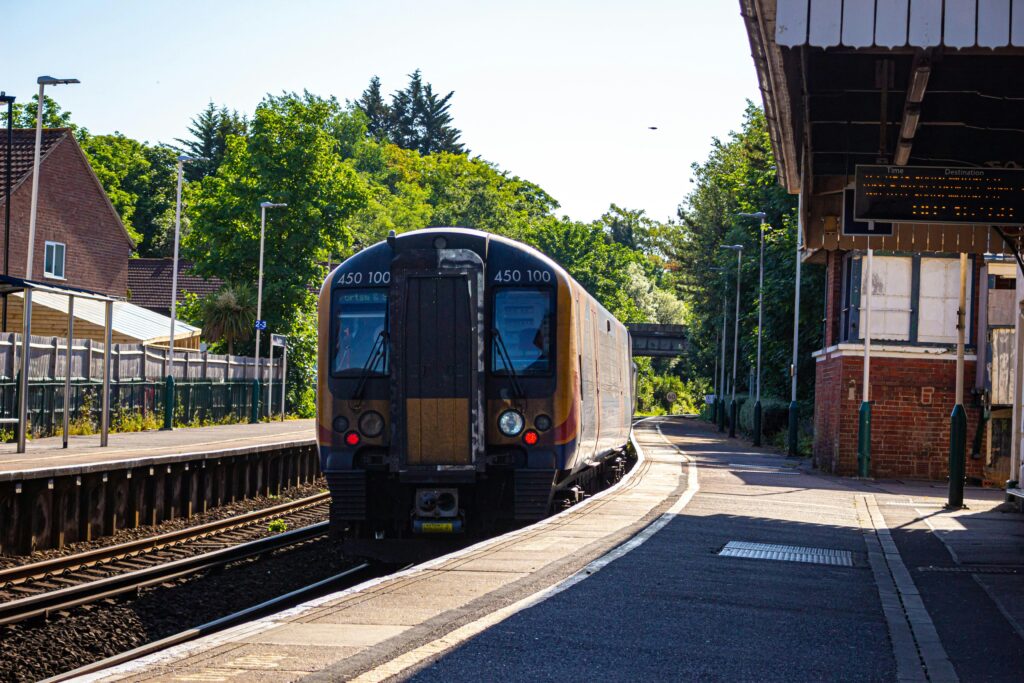
Flying on a Budget
Use flight comparison websites like Skyscanner, Kayak, and Google Flights to compare prices from different airlines and travel agencies. Set fare alerts to get notified of price drops and special deals. Be flexible with your travel dates and consider flying during mid-week or off-peak seasons for the best rates. Budget airlines often offer lower fares compared to full-service airlines. However, be aware of additional fees for baggage, seat selection, and other services. Read the airline’s policies carefully and pack light to avoid extra charges. Hidden fees can quickly add up, so it’s important to be aware of them when booking flights. Choose airlines that include baggage allowance in the ticket price, avoid premium seat selections, and bring your own snacks and entertainment to avoid onboard purchases.
Using Public Transportation
Public transportation is often the most cost-effective way to get around a city or region. Buses, trains, and subways are usually much cheaper than taxis or car rentals. Additionally, using public transportation allows you to experience the destination like a local and reduce your environmental footprint. To navigate public transportation systems, use apps like Google Maps, Citymapper, and Moovit. These apps provide real-time schedules, route planning, and navigation assistance. Purchase travel cards or passes for unlimited travel within a certain period, which can save money compared to single-trip tickets. Before your trip, research the public transportation options available at your destination. Look for information on routes, schedules, and fares. Many cities offer tourist passes that include unlimited travel on public transportation and discounts on attractions.
Renting Vehicles
Renting a car or scooter can be cost-effective if you’re traveling to remote areas or regions with limited public transportation. It also provides flexibility and convenience for exploring destinations at your own pace. However, consider the costs of fuel, insurance, and parking when deciding whether to rent a vehicle. Use websites like Rentalcars.com, Kayak, and Expedia to compare rental prices from different companies. Look for discounts and special offers, and book in advance to secure lower rates. Consider renting from local companies, which may offer more competitive prices than international chains. Carefully read the rental agreement to understand the terms and conditions. Pay attention to details such as mileage limits, fuel policies, and insurance coverage. Choose a rental plan that includes basic insurance and avoid unnecessary add-ons to keep costs down.
Saving Money on Food and Drink
Food and drink are essential parts of the travel experience, but dining out can quickly become expensive. Here are some tips to save money on meals and beverages.

Cooking Your Own Meals
Benefits of self-catering while traveling and tips for shopping at local markets.
Benefits of Self-Catering
Cooking your own meals can significantly reduce your food expenses while traveling. It also allows you to control the ingredients and cater to dietary preferences. Staying in accommodation with a kitchenette or shared kitchen enables you to prepare simple and healthy meals.
Shopping at Local Markets
Shopping at local markets is an excellent way to experience the local culture and find fresh, affordable ingredients. Look for fruits, vegetables, meats, and other produce that are in season. Buying in bulk and preparing meals in advance can further reduce costs.
Packing a Travel Kitchen
Consider packing a small travel kitchen kit with essential items like a knife, cutting board, and reusable containers. This allows you to prepare meals on the go and avoid relying on expensive convenience foods.
Local Eateries
Eating at local restaurants and eateries is often cheaper than dining at touristy spots. Look for places where locals dine, as these establishments typically offer authentic food at lower prices. Ask locals for recommendations and explore neighborhoods away from the main tourist areas.
Street Food
Street food is an integral part of the culinary culture in many destinations and offers delicious and affordable options. From food trucks to market stalls, street food vendors often serve fresh and flavorful dishes at a fraction of the cost of sit-down restaurants. Be adventurous and try local specialties.
Dining at Markets
Many cities have food markets that offer a variety of dishes from different vendors. These markets provide an opportunity to sample a wide range of foods at reasonable prices. Markets are also great places to interact with locals and learn about the ingredients and preparation methods.
Lunch Specials: Dining out
Many restaurants offer lunch specials or set menus that are cheaper than their dinner offerings. Take advantage of these deals to enjoy a sit-down meal without breaking the bank. Lunch specials often include multiple courses or side dishes at a discounted price.
Happy Hours
Happy hours are a great way to enjoy drinks and appetizers at reduced prices. Look for bars and restaurants that offer happy hour deals in the late afternoon or early evening. This is a budget-friendly way to unwind and socialize after a day of exploring.
Avoiding Tourist Traps
Tourist traps are restaurants and cafes located in heavily touristed areas that often charge inflated prices for mediocre food. Avoid dining at establishments near major attractions and instead explore side streets and local neighborhoods for better and more affordable options.
Sharing Meals
Sharing meals is another way to save money while dining out. Many restaurants serve large portions that can be shared between two people. This allows you to try more dishes without overspending.
Affordable Activities and Attractions

Free Museums and Galleries
Many cities offer free entry to museums, galleries, and cultural sites on certain days of the month or year. Research these opportunities in advance and plan your visit accordingly. Some museums also offer discounted entry during specific hours.
Public Parks and Gardens
Public parks and gardens are often free to enter and provide a peaceful escape from the hustle and bustle of the city. They are perfect for picnics, leisurely walks, and enjoying nature. Some parks also host free events, concerts, and festivals.
Walking Tours
Walking tours are an excellent way to explore a city and learn about its history and culture. Many cities offer free walking tours led by knowledgeable local guides. These tours are usually tip-based, allowing you to pay what you can afford. Self-guided walking tours are another option, using maps and apps to navigate the city at your own pace.
City Passes
City passes and attraction bundles provide access to multiple attractions at a discounted rate. These passes often include skip-the-line privileges and additional perks such as free public transportation. Research city passes available at your destination and compare their offerings to individual ticket prices to determine if they provide good value.
Student and Senior Discounts
Many attractions, museums, and transportation services offer discounts for students and seniors. Always carry a valid student or ID card to take advantage of these savings. Check the eligibility requirements and apply for any discount cards or passes before your trip.
Cheap travel by enrolling in volunteer travel programs

Volunteer travel allows you to give back to the community while exploring a new destination. It provides a unique and meaningful travel experience, often at a lower cost. Many volunteer programs offer free or discounted accommodation and meals in exchange for your time and skills. To find reputable volunteer opportunities, research organizations that match your interests and skills. Websites like Workaway, HelpX, and WWOOF connect travelers with volunteer projects worldwide. Read reviews and testimonials from previous volunteers to ensure the organization is legitimate and well-managed. Consider volunteering abroad in areas such as education, conservation, healthcare, and community development. These experiences not only reduce your travel expenses but also provide valuable opportunities for cultural exchange and personal growth.
Traveling Smart to Save Money
Traveling with a carry-on only can save you money on baggage fees and make your journey more convenient. Many budget airlines charge extra for checked luggage, so packing light helps you avoid these fees. Additionally, a carry-on bag is easier to manage and reduces the risk of lost or delayed luggage. To pack efficiently, choose versatile clothing that can be mixed and matched. Opt for lightweight, quick-drying fabrics and pack layers to accommodate different weather conditions. Use packing cubes to organize your belongings and maximize space. Roll your clothes instead of folding them to reduce wrinkles and save space. Pack essential items such as a reusable water bottle, travel-sized toiletries, a compact first aid kit, and a universal power adapter. These items ensure you are prepared for any situation and can avoid unnecessary purchases during your trip.
Avoiding Tourist Scams
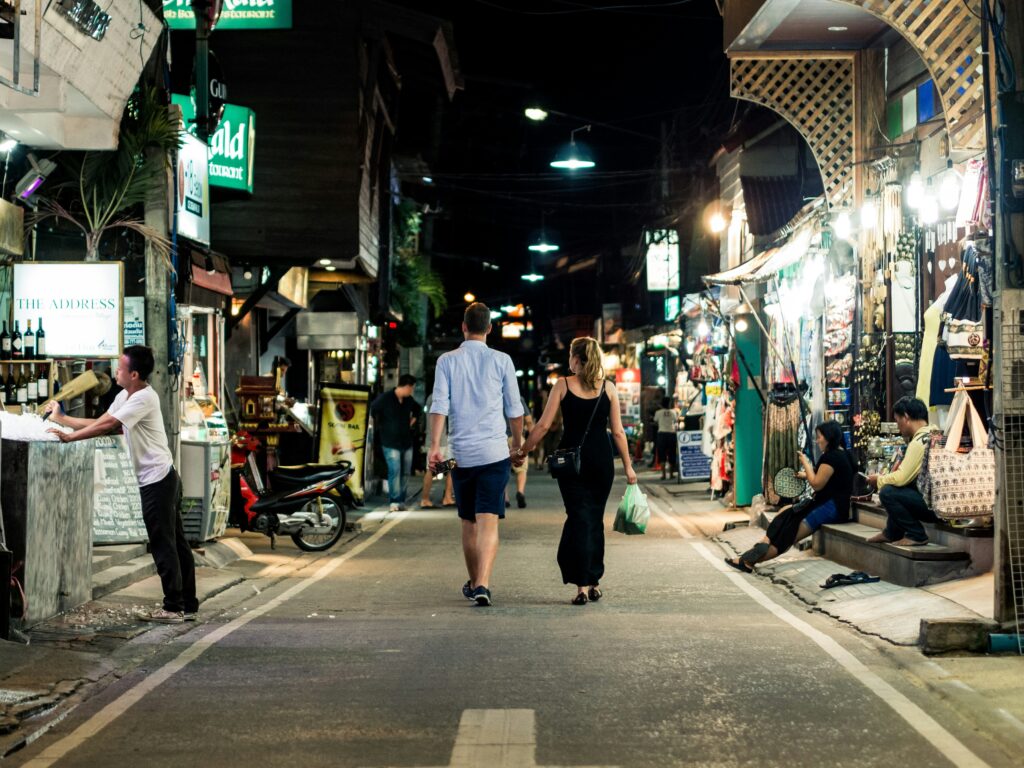
Be aware of common travel scams such as fake taxi meters, overpriced souvenirs, and distraction thefts. Research the typical scams in your destination and stay vigilant. If something seems too good to be true, it probably is. To stay safe, keep your belongings secure and be cautious in crowded areas. Use a money belt or hidden pouch to carry your valuables, and avoid displaying expensive items such as jewelry and electronics. Be wary of unsolicited offers for help and always use official services for transportation and tours. Protect your money by using a combination of cash, credit cards, and traveler’s checks. Keep a small amount of cash on hand for daily expenses and use credit cards for larger purchases. Notify your bank of your travel plans to avoid any issues with your cards.
Utilizing Travel Insurance
Travel insurance is essential for budget travelers as it provides coverage for unexpected events such as medical emergencies, trip cancellations, and lost luggage. Without insurance, these incidents can result in significant out-of-pocket expenses that can derail your budget. When choosing a travel insurance policy, consider the coverage options, deductibles, and exclusions. Look for policies that include medical coverage, trip interruption, and emergency evacuation. Compare different providers and read reviews to find a reputable insurance company. Websites like InsureMyTrip and Squaremouth allow you to compare policies and prices from multiple providers.
Conclusion
In this guide, we’ve explored numerous strategies for traveling the world on a shoestring budget. From planning your trip and researching affordable destinations to finding the best travel deals and choosing budget-friendly accommodations, there are many ways to make your travel dreams a reality without breaking the bank. Budget travel allows you to experience the world in a more authentic and meaningful way. It encourages you to be resourceful, connect with locals, and appreciate the simple pleasures of travel. Embrace the challenges and rewards of budget travel, and you’ll find that it’s possible to have amazing experiences without spending a fortune. As you embark on your budget travel adventure, remember to stay flexible, be open to new experiences, and prioritize what’s most important to you. Use the tips and strategies outlined in this guide to plan and enjoy your trip while staying within your budget. Safe travels!
FAQs
What are the best destinations for budget travel?
Some of the best budget travel destinations include Southeast Asia (Thailand, Vietnam), Eastern Europe (Hungary, Poland), and Central America (Guatemala, Nicaragua).
How can I find cheap flights?
Use flight comparison websites, set fare alerts, book in advance, and be flexible with your travel dates to find the best deals on flights.
Are hostels safe for budget travelers?
Yes, hostels are generally safe for budget travelers. Ensure you read reviews, choose reputable hostels, and follow basic safety precautions.
What are some free activities to do while traveling?
Free activities include visiting parks, museums with free entry days, walking tours, exploring local markets, and enjoying public beaches.
How can I save money on food while traveling?
Save money on food by cooking your own meals, eating at local markets and street food stalls, and taking advantage of lunch specials and happy hours at restaurants.

